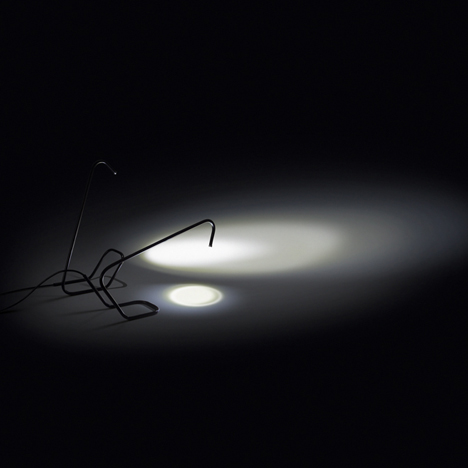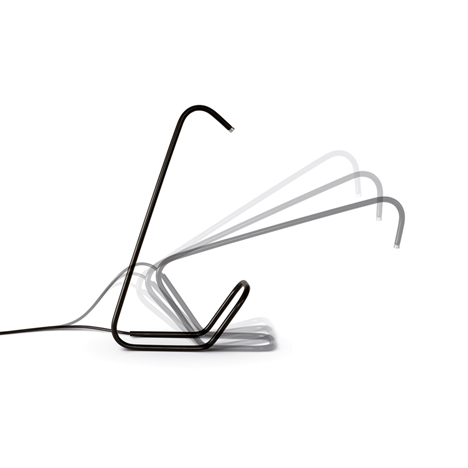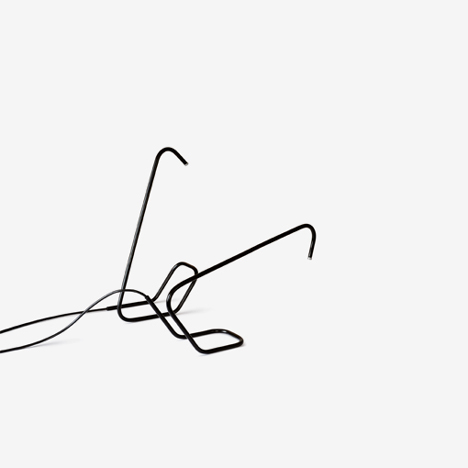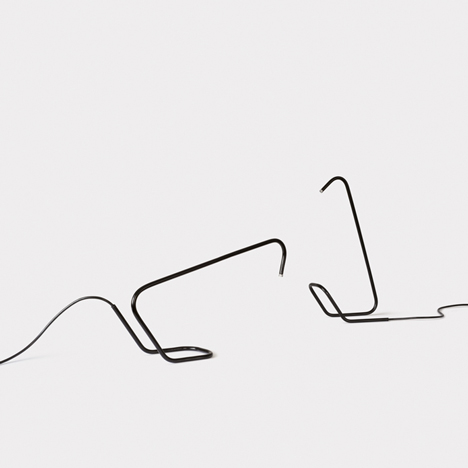Designer Thomas Feichtner of Vienna, Austria, has made this task lamp that can be balanced in two different positions to vary the light intensity.

Called Drawing Lamp, it can be tilted forward into a horizontal position to concentrate light on a small area of the desk, or left upright to give a wider spread of light.

The lamp uses an LED and is made from a steel tube through which the power cable runs.

Here’s some more from the designer:
Drawing Lamp.
The Drawing Lamp is a consistently simple lamp reduced to the basics, including cable and illuminant. Thomas Feichtner designed this desk lamp for his own use. As the name implies the Drawing Lamp is a lamp preferably used by the designer to illuminate the drawing area. On the one hand it lights the whole desk surface, on the other hand its light can be directed precisely to where it is needed on the paper – as Thomas Feichtner prefers it for sketching.
The light is not focused via a complex mechanical system or by adjusting a reflector but simply by putting the whole lamp into a horizontal position. Its construction allows placing it on the desk at two different angular positions. The lamp can be put down in a horizontal position with the illuminant slightly above the desk surface or in a vertical position with a maximum distance between the illuminant and the desk surface.
The lamp keeps its balance as in a balancing act. The conclusive implementation of the simple construction, with the cable running through the tube to the illuminant – the destination point and the source of light – was made possible by LED technology.
LEDs do not require a reflector to concentrate the emitted light, and thus it was possible to simply put the LED into the tube. The appearance of the Drawing Lamp is defined by the cable, the steel tube and the LED illuminant. Like the classic bare light bulb hanging on a cord from the ceiling the Drawing Lamp is reduced to the bare essentials. Only the sophisticated deformation of the tube provides the lamp with the benefit of adjustability. The interplay of angles, radiuses and lines results in an object which is conclusive in terms of construction and form.
See also:
.
| Doride lamp by Karim Rashid |
Sketch lamp by Hung-Ming Chen |
Dezeen’s top ten: lighting |

